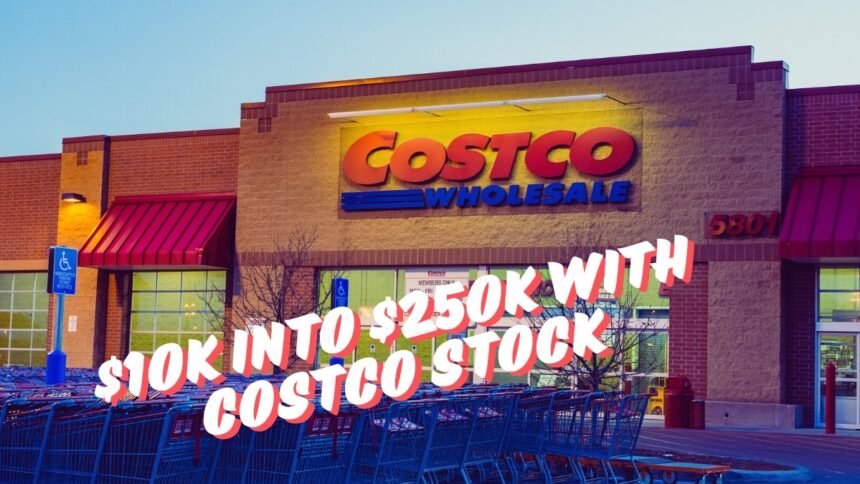In the world of investing, few stories illustrate the power of patience and strategic thinking like the remarkable journey of Costco Wholesale (NASDAQ: COST) over the past 15 years.
While the retail giant has become a household name for its vast warehouse stores and loyal customer base, the journey of its stock is a tale worth examining for investors seeking long-term wealth accumulation.
The Financial Crisis: A Time of Peril and Opportunity
Fifteen years ago, the global economy was in the throes of the financial crisis—a time when fear dominated the market, and investors were wary of pouring their money into anything, let alone a retailer like Costco.
The company, which had enjoyed rapid growth, suddenly found itself facing the stark reality of reduced consumer spending. With the recession tightening its grip, even Costco, known for its value-oriented business model, felt the pinch.
Net sales in fiscal 2009 dropped by almost 2% to $70 billion, a sharp contrast to the 13% increase seen in 2008.Yet, for those with the foresight to recognize Costco’s underlying strength, the downturn presented a golden opportunity.
During this period, Costco’s price-to-earnings (P/E) ratio fell to just 19, a significant drop from its current 54 earnings multiple.
This dip was not just a reflection of the market’s uncertainty but also a signal for savvy investors to buy a high-quality stock at a discount.
The Rebound: Costco’s Recovery and Expansion
What followed the financial crisis was nothing short of extraordinary. As the economy began to recover, so did Costco. In fiscal 2010, the company’s net sales rebounded with a 9% increase, followed by an impressive 14% rise in 2011.
This recovery wasn’t just a flash in the pan; it marked the beginning of a sustained period of growth for the retailer.If you had invested $10,000 in Costco stock in August 2009, you would have acquired 206 shares at approximately $48.50 per share.
Fast forward to today, and with Costco’s stock price sitting at just over $881 per share, your initial investment would have ballooned to over $180,000. But the story doesn’t end there.
When you factor in dividends, which Costco has consistently paid out over the years, the total return on your investment would surpass $250,000.
The Power of Long-Term Investing
The Costco story underscores several key lessons for investors, particularly those interested in building wealth over the long term.
First, it highlights the importance of maintaining a long-term perspective, especially during periods of economic uncertainty.
In 2009, many investors were consumed by fear and uncertainty, leading them to shy away from the market.
However, those who recognized Costco’s intrinsic value and stayed the course were handsomely rewarded.
Second, the performance of Costco’s stock over the past 15 years illustrates the value of investing in companies with strong fundamentals and a proven track record.
Even when faced with short-term challenges, businesses like Costco have the resilience to bounce back and continue growing.
This resilience is often reflected in their stock price, which, as we’ve seen, can increase significantly over time.
Lastly, Costco’s journey demonstrates the importance of dividends in long-term wealth accumulation.
While stock price appreciation often gets the most attention, dividends can significantly enhance an investor’s total return.
In Costco’s case, the inclusion of dividends pushed the total return on a $10,000 investment from $180,000 to over $250,000, illustrating the compounding effect that dividends can have on your portfolio.
Is Costco Still a Good Investment?
Given Costco’s impressive performance over the past 15 years, it’s natural to wonder whether the stock is still a good investment today.
However, it’s important to remember that the past is not always a predictor of the future. With a current P/E ratio of 54, some investors might be hesitant to buy Costco at its current price, especially with net sales growth slowing to 7% in the first three quarters of fiscal 2024.
That said, Costco remains a high-quality company with a strong business model and loyal customer base.
For those with a long-term investment horizon, Costco could still be a worthwhile addition to their portfolio, especially if purchased during a market downturn when the stock is trading at a more attractive valuation.





